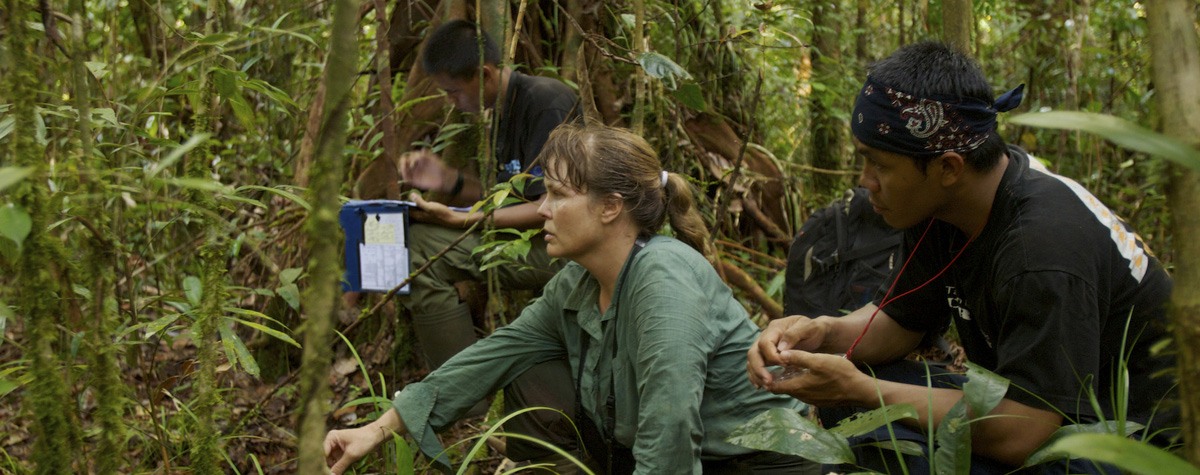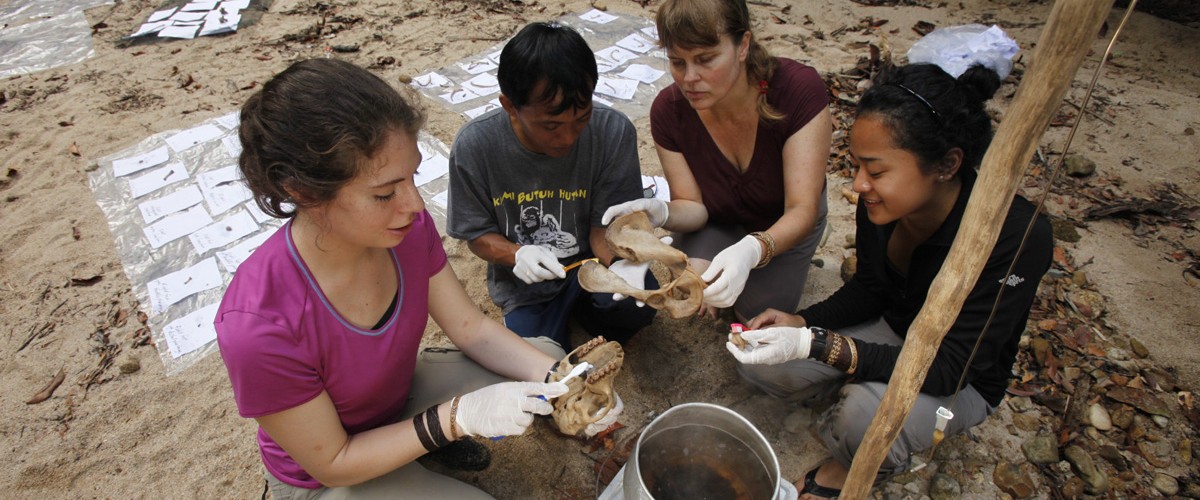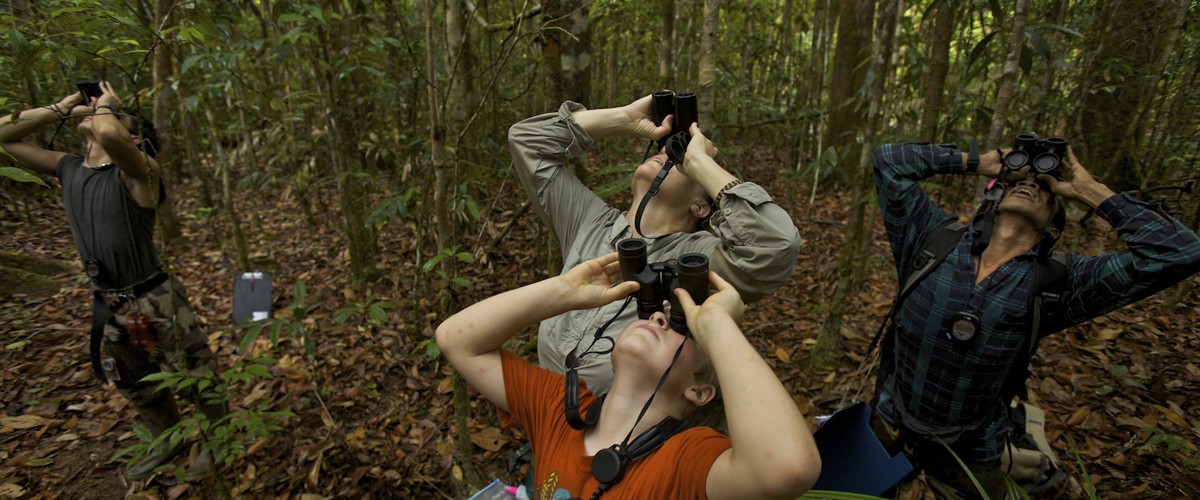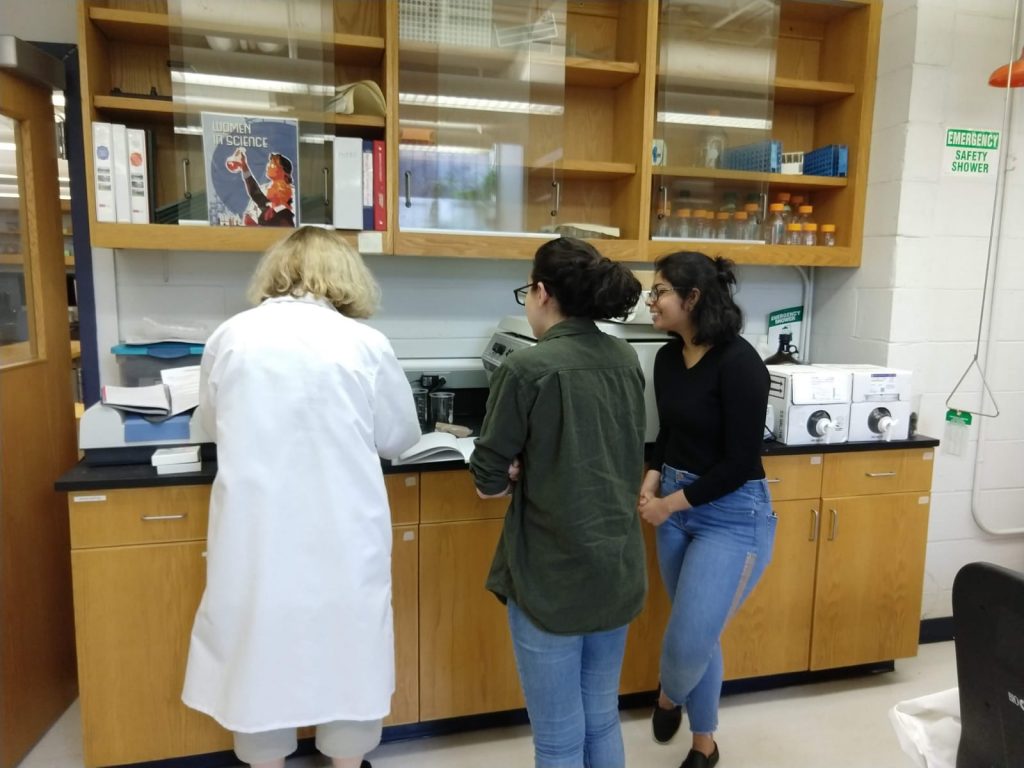By Dr. Erin Kane, PhD, Postdoctoral Researcher at Boston University
Just a few weeks into the New Year, I packed my bags in New England’s frozen north. I scoured outdoor stores full of ski balaclavas and high performance extra-thick wool socks to find the remnant’s of last year’s mosquito nets and lightweight shirts. I pulled my GPS and binoculars out from under the pile of scarves and fleecy gloves. I found my Bird Guide to West Borneo, and I made sure Google Translate’s Bahasa Indonesia dictionary was downloaded on my phone. And I flew across the world to return to Gunung Palung National Park.
 |
|
Dr. Erin Kane enjoying the snow in Boston before heading out to tropical Borneo! |
It had been nearly a year since I left the research station at Cabang Panti. As a postdoctoral research associate working with Dr. Cheryl Knott, I spend the majority of my time managing the Orangutan Reproductive Ecology, Behavior, and Nutrition Laboratory at Boston University. I supervise undergraduate students who are developing their research skills – analyzing nutritional content of orangutan foods, examining how mother orangutans move while carrying their offspring, and learning what goes into managing and maintaining a database with 25 years of research on wild orangutans. I mentor graduate students writing their dissertations and working on papers and presentations. And I work with Dr. Knott to analyze and publish and present data coming out of Indonesia.
In short, I spend a lot of time sitting at my computer in an interior room of a building right next to the Massachusetts Turnpike. And while I love working with students, and the concrete way that lab work comes together (follow the steps, mix things together, get a result!), there are times when I desperately miss the forest.
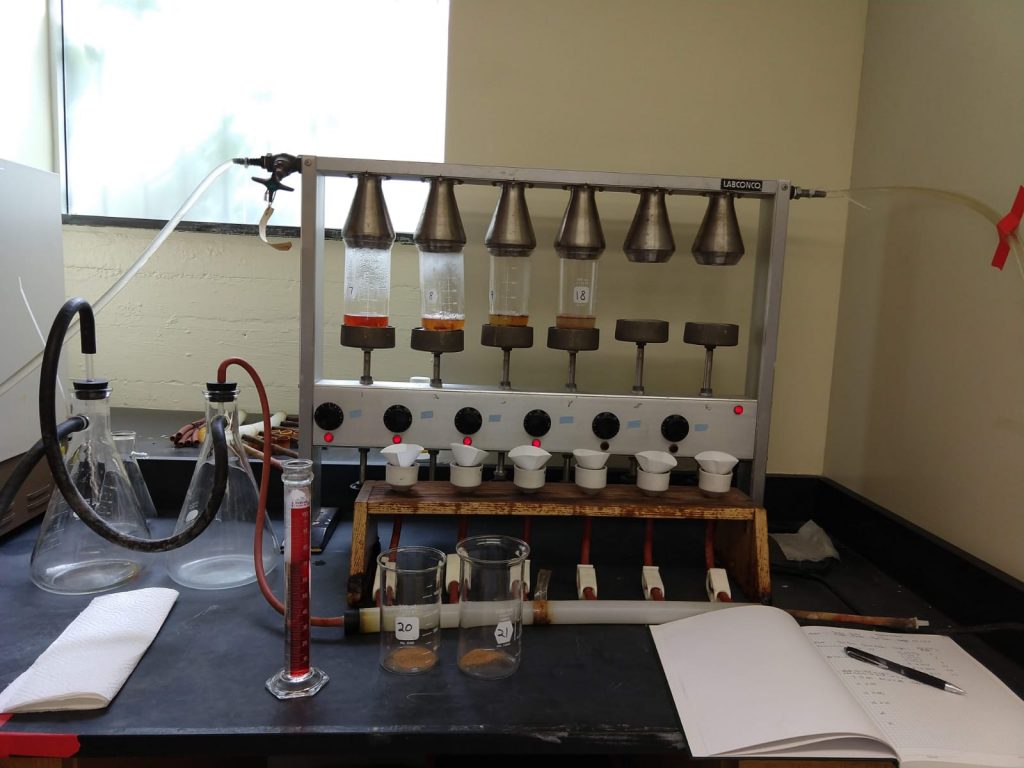 |
|
Plant samples from Gunung Palung National Park being boiled in sulfuric acid to digest everything but the fiber and what it is bound to. |
When I was in Gunung Palung National Park in 2018, I was struck by how little fruit there was in the forest. I have worked in forests in Africa and South America where I was literally pelted with falling fruit. When I followed orangutans in 2018, in a month of research I rarely saw the orangutans eating food that looked palatable. Bark, termite nests, the occasional piece of unripe fruit … nothing that looked or smelled particularly appealing. My arrival at the research station this year coincided with the tail end of a mast fruiting event, and the forest seemed like it was stuffed with fruit.
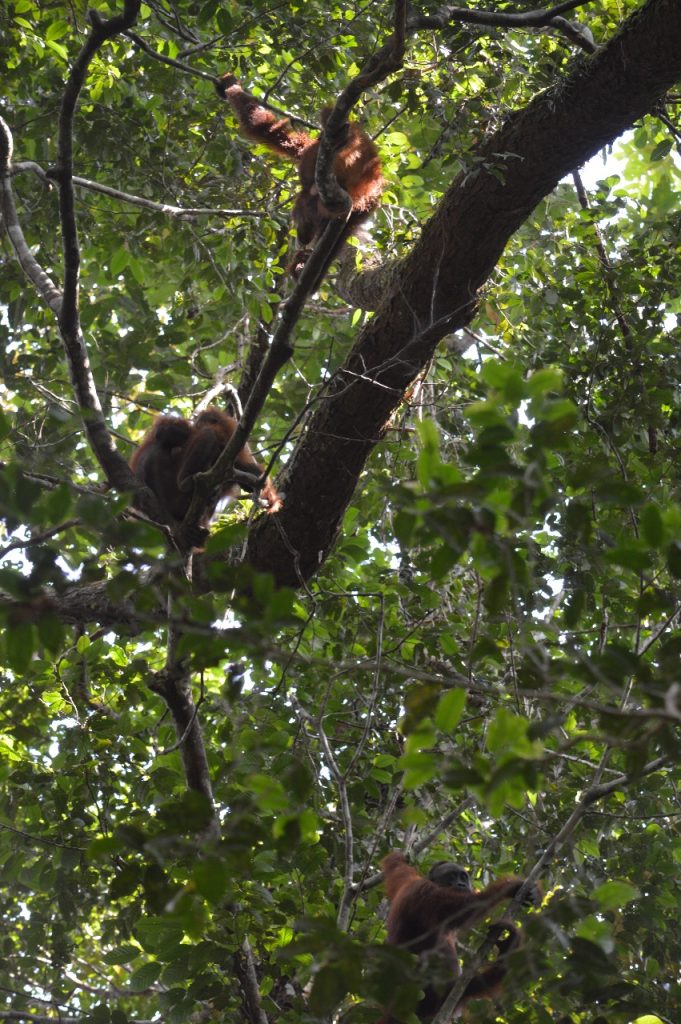 |
|
Multiple orangutans (a rare sight!) enjoying fruit in Gunung Palung National Park. |
It was also stuffed with orangutans. In two weeks at the research station, I followed four flanged adult males, and saw two unflanged males. On my previous trip, it took me nearly two weeks to find my first orangutan! But these orangutans were living the good life. They slept in (sometimes as late as 5:45 am)! They napped multiple times a day! And they spent hours each day gorging on fruits of rambutan, baccaurea. And oh! The durian! Green durian! Red durian! Orange durian! The orangutans can crack open the spiky, hard casing with their teeth alone. Researchers and field assistants have to rely on machetes to open fallen durian. I’m still not sure exactly how appealing it smells, but there is no experience that exemplifies Indonesian rainforests quite like sitting 30 meters below an orangutan while you both suck the pulp off of durian seeds.
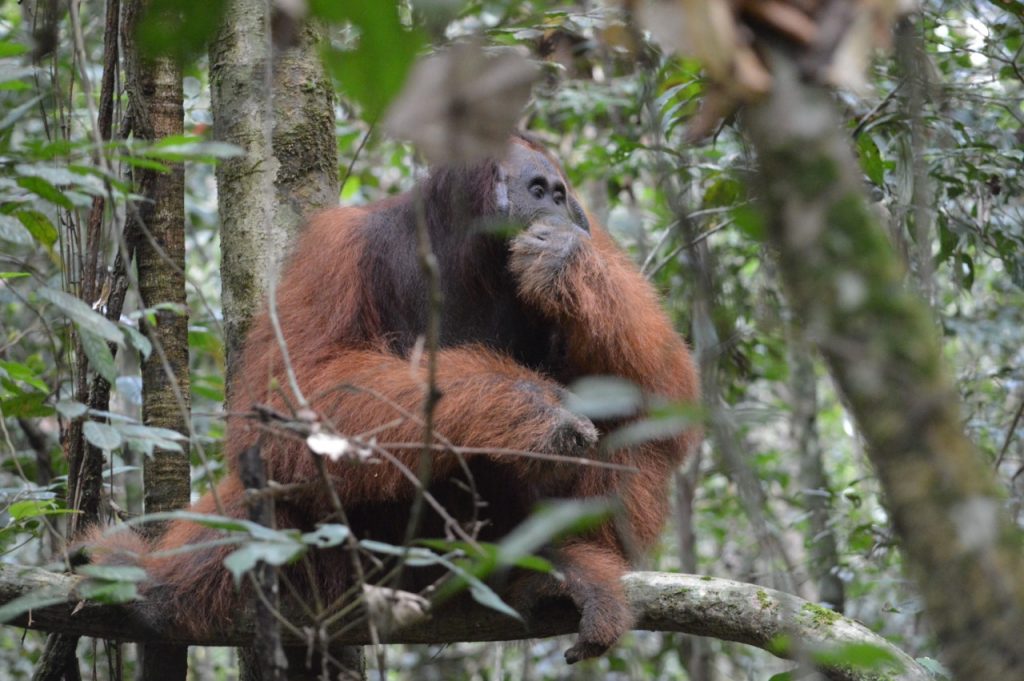 |
|
A large male orangutan enjoying some fruit in GPNP. Photo by Dr. Alys Granados. |
I had the honor on this trip of meeting with our research counterparts in Jakarta and Bogor to discuss next steps in our ongoing research on orangutan juvenile development. Although Jakarta is not as far removed from the rainforest geographically as Boston is, it’s hard to imagine a place that is more different. Bird calls, insect vocalizations, gibbons duetting – replaced by revving motorcycles, car horns, and construction. Rivers and towering trees – replaced by highways and skyscrapers. It was exciting to be able to “return” to the forest with our colleagues as we discussed fruit biochemistry, orangutan long calls, and exactly how delicious it is to eat durian while male orangutans nap above you.
